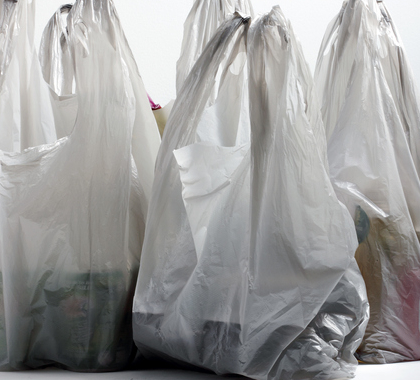New Hampshire is not joining California, Hawaii, and New York in banning thin-film plastic bags, and won’t limit soda straws this legislative session, after the state Senate decided not to pass two measures approved by the state House of Representatives.
The New Hampshire House passed H.B. 560, which would have prohibited grocery stores, restaurants, coffee shops, and other businesses from providing single-use plastic carry-out bags to customers, on March 19. On the same day, the House also passed H.B. 558, which would have prevented restaurants and other food vendors from providing plastic straws unless asked by customers.
The New Hampshire Senate declined to pass H.B. 558, the plastic straw ban, and passed an amended version of H.B. 560 that would require New Hampshire towns to produce annual waste management reports, on May 15.
‘Consumers Now Are Free’
A plastic bag ban is not right for New Hampshire, says state Rep. Glenn Cordelli (R-Carroll). “NH is the ‘Live Free or Die’ state,” Cordelli said.
“Consumers now are free to use canvas bags to carry groceries without a government mandate or ban on plastics,” Cordelli said.
Bag ban supporters do not understand how people use disposable plastic bags beyond carrying food from a store, says Cordelli.
“In many cases, the term ‘single use’ is a misnomer,” Cordelli said. “Many people who do carry their groceries out in plastic bags reuse them in their household for things such as trash can liners.”
No Benefit, All Costs
Bans on single-use plastic bags fail to achieve the stated legislative goals of decreasing plastic waste and are costly to retailers and consumers, says Angela Logomasini, a senior fellow at the Competitive Enterprise Institute.
“Both bans and taxes simply inconvenience consumers and cost them money in return for no environmental benefits,” Logomasini said.
“Some retailers may like the taxes because some policies allow them to keep the fees and they can claim to be doing something good for the environment despite the fact that the bans and taxes do more harm than good,” Logomasini said.
“Taxes are bad enough, but a ban is even worse because it will force consumers to use products that produce more waste and use more energy,” Logomasini said.
“Bans also harm small businesses that make, sell, and distribute these products,” said Logomasini.
Plastic Bags Reused, Recycled
Plastic bag bans do not have a significant impact on the overall amount of litter and waste, says Matt Seaholm, executive director of the American Progressive Bag Alliance.
“Bags make up less than 0.3 percent of waste and consistently less than 1 percent of litter,” Seaholm said. “The alternatives are in many ways much worse for the environment.
“Every independent study done looking at the life cycle of all checkout bags has concluded that plastic bags have the least overall impact on the environment as long as they are disposed of properly,” Seaholm said. “Plastic grocery bags are 100 percent recyclable, and 78 percent [are reused], according to one recent study.”
High Costs of Cloth Bags
One alternative to plastic bags is reusable bags, but those have environmental costs, says Logomasini.
“Plastic bans and taxes often do more harm than good in regard to the environment because replacement bags are often worse,” Logomasini said. “For example, reusable cloth bags … require far more energy and other resources to make, and they may produce more landfill waste.
“A 2011 study by the UK government’s Environment Agency found that cotton bags would have to be used 131 times before they yield environmental benefits.”
Paper Bag Problems
Plastic bags require less energy to produce than paper bags, says Logomasini.
“One study reports that plastic bags require 71 percent less energy to produce,” Logomasini said.
“Plastic bag production also uses less than 6 percent of the water needed to make paper bags. In addition, paper bags generate nearly five times the amount of solid waste.”
Paper bags are a bulkier, heavier alternative, says Seaholm.
“It takes seven trucks to deliver the same number of paper bags as it does for one truck of plastic bags,” Seaholm said.
Not a First-World Problem?
Plastic waste is a problem, but the solution isn’t a ban on plastic bags or straws, says Logomasini.
“There are real problems related to plastic waste in the ocean, which is the result of poor waste disposal practices,” Logomasini said.
“This problem is very difficult to solve since most of that waste enters the ocean from Asia and Africa because of poor waste management practices in developing nations,” Logomasini said. “U.S. citizens can help by ensuring that we manage our trash correctly and by not littering. Banning bags, straws, or other plastics isn’t going to solve anything.”
Kelsey E. Hackem ([email protected]) writes from Washington State.
Official Connection
Rep. Glenn Cordelli (R-Carroll): http://gencourt.state.nh.us/house/members/default.aspx




